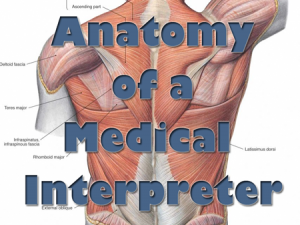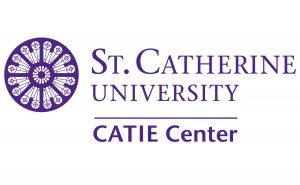 Interpreting in healthcare settings requires specialized knowledge to successful support both providers and patients. This workshop will introduce participants to a range of resources created by the CATIE Center at St. Catherine University as part of the National Consortium of Interpreter Education Centers (NCIEC). We will look at the Domains and Competencies identified by the CATIE Center and then experience some of the online resources available through the NCIEC.
Interpreting in healthcare settings requires specialized knowledge to successful support both providers and patients. This workshop will introduce participants to a range of resources created by the CATIE Center at St. Catherine University as part of the National Consortium of Interpreter Education Centers (NCIEC). We will look at the Domains and Competencies identified by the CATIE Center and then experience some of the online resources available through the NCIEC.
This includes a wide variety of video resources, independent study, and online workshops. Come prepared to learn about resources for further professional development as well as learning and practicing strategies for working with the materials in more effective ways.
A successful participant in this workshop will be able to:
- Identify at least 5 competencies of interpreters in healthcare settings
- Describe the three step process based on Vygotsky’s educational theories.
- Create ASL explanations of descriptions of human anatomy/physiology and medical procedures and conditions.
- List at least 5 resources for continued professional development.
- Produce rehearsed interpretations for appointments in clinical settings.
"Anatomy of Medical Interpreter" Resources
Case-Conferencing Articles
Here are a list of articles that touch on the importance of Case-Conferencing:
CATIE Center Resources

The CATIE Center at St. Catherine University is a part of the National Consortium of Interpreter Education Centers. It has been a part of producing a number of resources for interpreting in health care settings.
- Domains and Competences for Healthcare Interpreting: This document identifies the broad domains and individual competencies needed for effectively working in healthcare settings.
- Annotated Bibliography: This resource identifies relevant resources and articles/books and suggests which domains they apply to. It is available in a variety of formats, including a spreadsheet that is searchable.
- Towards Reflective Practice: This document developed by Karen Malcolm uses the framework of the Demand Control Schema from Robyn Dean and Bob Pollard to help interpreters work toward being more reflective in their practice.
- Body Language Workshops: These workshops provide a focus on developing language for talking about anatomy and medical procedures.
- Healthcare Interpreting Career Lattice: The Healthcare Interpreting Career Lattice provides an outline of what is needed to enter this specialty, and identifies specific steps towards developing competency.
- Videos available on Healthcareinterpreting.org
Hawai’i Medical Handouts
Here are the handouts from the workshop in Hawai’i in April 2015.
- Anatomy of Healthcare Interpreting- Presentation: These are the slides that were used during the presentation, although there were some that weren’t used.
- Anatomy of Medical Interpreter Handout: This is the one page handout that was provided.
Demand-Control Schema
Publications
The work by Robyn Dean and Robert Pollard has facilitated a fundamental shift in the interpreting profession from a deontological sense of ethics to a more teleological one. If you are curious about what that means, check out their web site at: Demand-Control Schema
From their web site, you can contact Robyn Dean for the latest information. It is important to recognize that understandings of the Demand-Control Schema is not static. Dean & Pollard are continuing to refine the application of DC-S so be sure to look for the most up-to-date publications and materials.
The latest article from Dean and Pollard which contains the most updated formulation of the Demand-Control Schema in an article format.
Dean & Pollard, 2012. Context-based Ethical Reasoning in Interpreting: A Demand Control Schema Perspective. The Interpreter and Translator Trainer, 5(1) 2011, 155-82.
You can access more of Dean’s publications here.
Webinars & Videos
MARIE Center Webinars
Robyn Dean did a series of webinars in 2014 for the MARIE Center as part of the NCIEC. These are presented in spoken English with captioning and ASL interpretation.
Videos as Part of NCIEC Mentoring Toolkit
Robyn Dean and Bob Pollard created a series of ASL videos explaining the Demand-Control Schema. (These are created in ASL without any English translation.) See those videos under the heading “Robyn Dean.”
Additional Resources
Facebook: get updated information here.
Observation-Supervision: Here’s a blog post from Robyn Dean about the important of developing these groups for observation-supervision.
 Text Book: In 2013, Robyn Dean and Robert Pollard published a textbook on Demand-Control Schema. You can order a copy here.
Text Book: In 2013, Robyn Dean and Robert Pollard published a textbook on Demand-Control Schema. You can order a copy here.
A Resource on Tacit Schemas for Ethical Decision-Making
Rest, J.R., Navarez, D., Bebeau, M., and Thoma, S.J. (1999). Postconventional moral thinking: A neo-Kohlbergian approach. Mahwah, NJ: Lawrence Erlbaum Associates.
